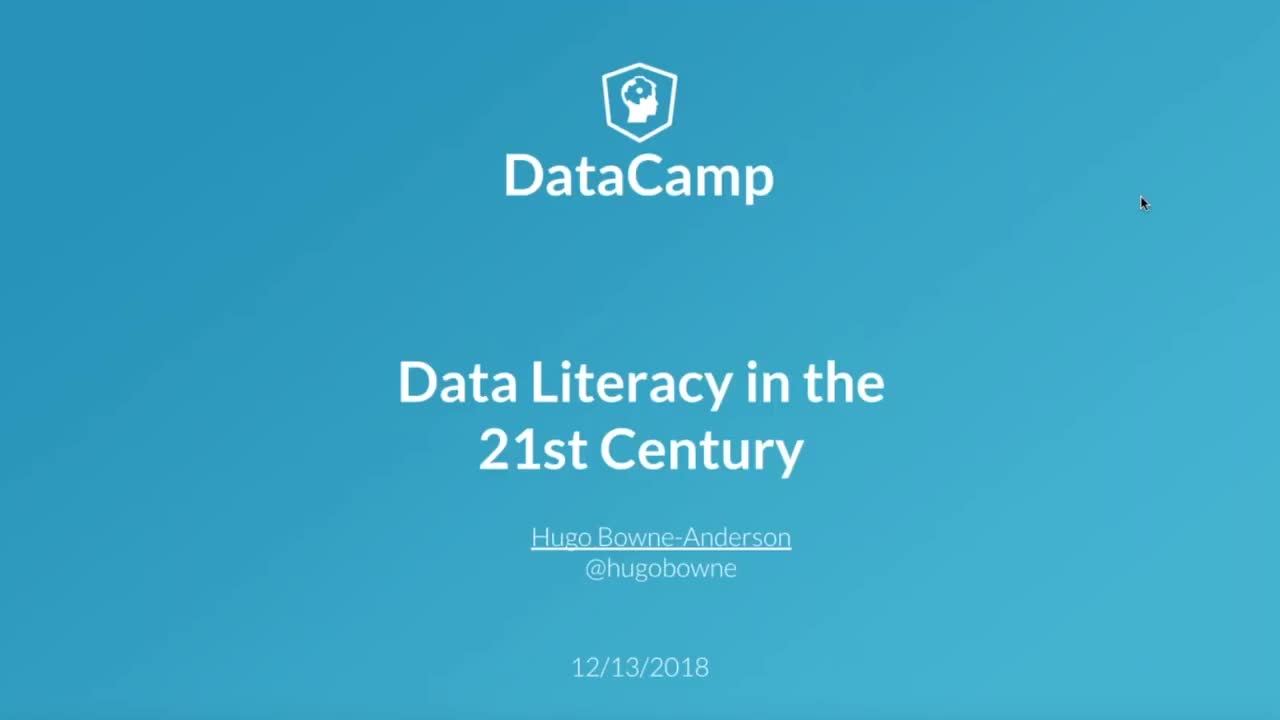Skip to main contentFor Business





Speakers
Training 2 or more people?
Get your team access to the full DataCamp library, with centralized reporting, assignments, projects and moreRelated
white paper
The L&D Guide to Data Literacy
Find the appropriate distribution of data skills across your organization.white paper
What Your Employees Must Learn to Work With Data in the 21st Century
These are the topics and skills that employees must know to work with data.webinar
What Your Employees Must Learn to Work With Data in the 21st Century
Here's how data can impact your employees' work and what they need to know.webinar
The State of Data Literacy in 2023
Learn about what the future holds for data skills.webinar
Be Data Literate: The Data Literacy Skills Everyone Needs to Succeed
Jordan Morrow outlines how people and organizations can be more data literatewebinar
Building Data Fluency in an Organization
Dive into the value of data fluency in an organization and how to achieve it.Join 5000+ companies and 80% of the Fortune 1000 who use DataCamp to upskill their teams.
Loved by thousands of companies

